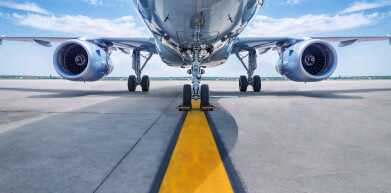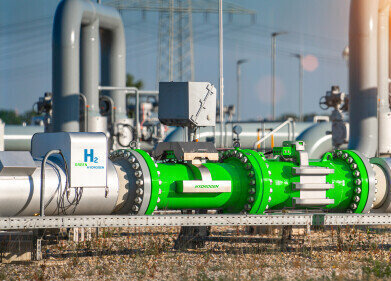Sustainable aviation fuel (SAF)
New technology turns sewage into sustainable aviation fuel
Jan 20 2025
Scientists have developed a groundbreaking method to convert wastewater into sustainable aviation fuel (SAF), offering a potential reduction in airplane emissions by up to 70% compared to conventional jet fuel. This innovation could play a significant role in addressing the environmental challenges posed by aviation, which contributes about 2.5% of global carbon dioxide emissions.
Mainstream aviation fuels are primarily derived from petroleum, while alternative fuels rely on fats or greases. Both options have environmental drawbacks and are not sufficient to meet the growing demand for greener aviation solutions. Additionally, wastewater from industries like breweries and dairy farms is often rich in organic compounds, which, if untreated, can lead to ecological issues such as algal blooms and biodiversity changes. Current wastewater treatment methods are energy-intensive and carbon-heavy, adding further strain on the environment.
The breakthrough, detailed in a study published in ACS Sustainable Chemistry and Engineering, involves the use of methane-arrested anaerobic digestion (MAAD). This process employs bacteria to break down organic matter in wastewater without releasing methane, producing volatile fatty acids (VFAs) like butyric acid and lactic acid. These VFAs serve as key precursors for SAF production.
However, the production of lactic acid in this process initially posed a challenge, as it limited the efficiency of SAF conversion and increased the carbon footprint. To overcome this, the researchers developed an electrochemical separation method to extract organic compounds from wastewater more effectively. This innovation, combined with a membrane-assisted in-situ product recovery system, enabled the team to optimize VFA production and streamline the conversion to SAF.
The membrane-assisted process reduces greenhouse gas emissions by 70% and has proven to be cost-efficient. The researchers demonstrated that VFA-derived SAF could achieve a fuel selling price of $4.64 per gasoline gallon equivalent, making it a competitive alternative to fossil-based jet fuels. Furthermore, life-cycle analyses showed significant reductions in water and fossil fuel consumption.
The Argonne National Laboratory team envisions scaling this technology to commercial levels, with the ultimate goal of meeting 100% of the aviation sector’s SAF demand. This effort is funded by the U.S. Department of Energy’s Office of Energy Efficiency and Renewable Energy. Beyond SAF, the researchers aim to explore other potential feedstocks and applications for this technology.
The study also addresses the dual challenge of waste management and carbon reduction, demonstrating how redirecting industrial waste streams can yield environmental and economic benefits. By utilizing wastewater from breweries, dairy farms, and similar industries, the process not only mitigates harmful waste disposal practices but also creates a low-carbon alternative to traditional fuels.
This technology represents a significant step toward decarbonizing aviation and combating climate change. According to Anne Jungblut, a life sciences researcher, untreated wastewater can have severe ecological impacts, including disruptions to biodiversity. By repurposing wastewater for SAF production, this innovation tackles multiple environmental issues simultaneously.
As the aviation industry seeks to align with global climate goals, such breakthroughs underscore the potential of science and technology to transform waste into a valuable resource, reducing the sector’s environmental footprint and paving the way for a more sustainable future.
Digital Edition
PIN 26.1 Feb/Mar 2025
March 2025
Analytical Instrumentation - Elemental Analysis for Quality and Process Control at Refineries, for Lubricants and Wear Metals in Engine Oils - Synthetic Lubricants: New Developments - Scaling...
View all digital editions
Events
Apr 02 2025 Saigon, Vietnam
Apr 02 2025 Atyrau, Kazakhstan
Apr 08 2025 Birmingham, UK
Apr 08 2025 Kielce, Poland
Apr 08 2025 Ravenna, Italy



















